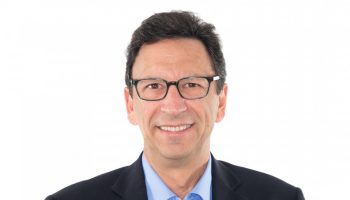Last year, I wrote a column in this series making the big-picture case for how the Inclusion, Diversity, Equity and Accessibility (IDEA) Strategic Plan supports the business imperatives of the Institution. I thought it might be helpful to reiterate that business case and provide some information on the work that the Institution is doing in these areas. I will also note that I am not articulating the moral, ethical or values-based case for IDEA, because there already is significant consensus amongst Chautauquans on that front. The business case, however, is often less clear.
The Institution is in a similar position as other arts organizations across the country — the pandemic has resulted in significant shifts in patron behavior and attendance. Many of you likely know this from experiences in your hometowns. This can partly be explained simply by the loss of lives to COVID-19, particularly because our community members tend to skew older. Additional forces have negatively impacted attendance, like COVID-19 forcing people to seek alternative travel or vacation locations closer to home; travel disruptions due to COVID-19, airline infrastructure issues, or climate change; and of course, the continued presence of COVID-19.
The Institution, like other arts organizations, has known for some time that diversifying our audience needs to be a prime short- to mid-term objective. Each year, our country becomes more racially diverse. If we are unable to invite and retain diverse audiences, we may experience an even further decline in attendance. The Ford Foundation leadership reified this understanding, describing our program offerings as excellent, but noting that we have much work to do in “audience development.” Many Chautauquans had already agreed with this assessment as well and articulated their reasons for supporting intentional efforts to make Chautauqua more diverse during the listening sessions that led to the creation of the 150 Forward strategic plan (150fwd.chq.org). I am grateful to the Ford Foundation for providing a seed grant of $100,000 to help us intensify our efforts to introduce Chautauqua to diverse audiences. We feel it is imperative that we work on inviting a broad array of diversity — younger audiences, working professionals, families with children, and, of course, racially and religiously diverse audiences, to name a few.
We have started this work already. The Ford monies are being used to develop a comprehensive, multi-year and multi-prong marketing plan with support from an experienced agency. This season, our partners will work with us to generate print and video content to create new marketing materials. In the fall, we will work with them to identify potential, diverse patrons who share a love for our four pillars: Arts, Religion, Education and Recreation. In addition to this external work, there is work we continue to do internally on this front. Where we need to work together, as Chautauquans, is to deliver the best experience we can to new and diverse patrons when they do come to our grounds and programs. The problem with first impressions is that we only get one chance to get it right. With your support and collaboration, we can easily incorporate new Chautauquans into the fabric of our community.
Another example of IDEA work impacting both the patron experience and the business objectives is around accessibility. Our continuous work to improve the physical, technological and programmatic accessibility of the grounds leads to better patron experience and retention. New initiatives like the expansion of our own mobility scooter fleet not only opened up new sources of revenue, but also led to an increase in gate pass sales when larger numbers of folks were able to come to the grounds because more devices were available for rent. The proceeds from these rentals are slated to support accessibility-related upgrades for our historic grounds. When Chautauquans with disabilities directly benefit from greater accessibility, they are not only more likely to come back for more seasons and bring their families and friends, but they are also much more likely to provide philanthropy to further enhance these efforts or support other Institutional priorities.
I chose to write this column partly because the larger conversation in society around IDEA efforts is often polarized, with claims that diversity work is either divisive or simply a drain on institutional resources. I don’t think that IDEA offices, generally speaking, have fully articulated the business impact of their operations. I hope that some of the examples I have shared above with you provide greater insight into the strategic work that the Institution is doing to support IDEA efforts, and how they align with Chautauqua’s strategic priorities. I welcome your ideas, reflections and questions. I invite you to an informal discussion time with me at 3:30 p.m. Monday, July 31, 2023, at the African American Heritage House. I cannot do this work alone, and I am appreciative of all Chautauquans who have expressed support or partnered with my office to lean into this work. I am grateful for your continued support.
Amit Taneja
Senior Vice President
Chief Inclusion, Diversity, Equity & Accessibility Officer





